A Dyson humidifier makes lives more comfortable during the dry winter months by balancing the humidity levels in the air. On the other hand, a humidifier can cause problems for you and your home in general. How is this possible with its filter, and what can be done about it? We have the answers for you from the experts.
A dirty Dyson humidifier filter can cause more harm than good, hence it needs to be cleaned regularly using any of the following methods:
- Rinsing the filter with water
- Cleaning the filter using vinegar
- Sanitizing the filter with bleach
Stay on this page to learn the different methods of cleaning a humidifier filter and how often to clean it. We'll also delve into what happens if you don't regularly clean it, and when to replace it.
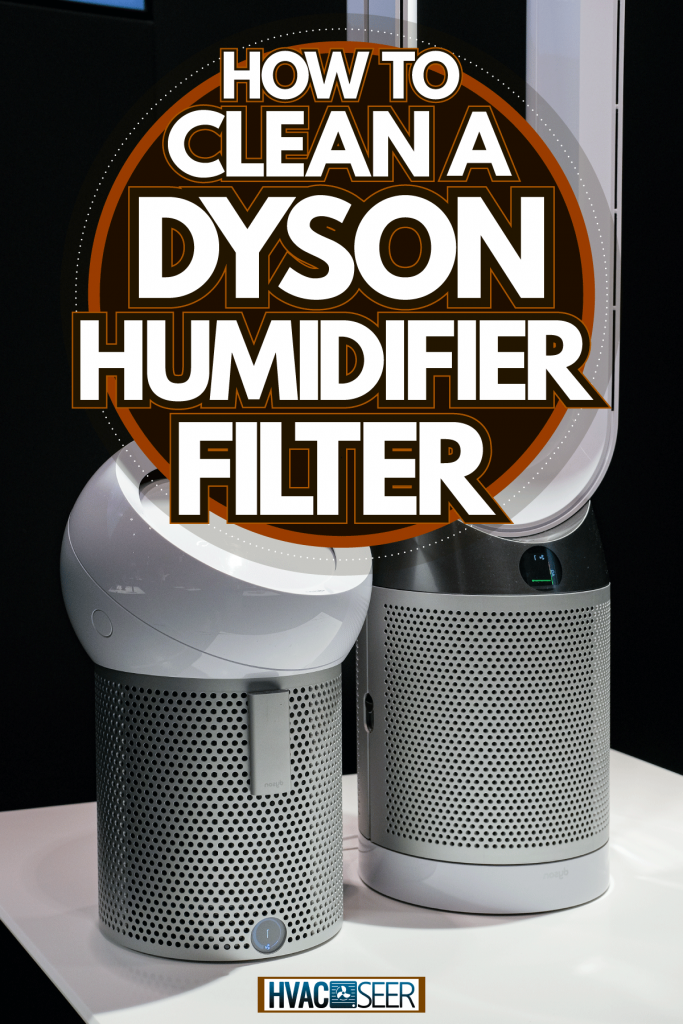
Basic Cleaning Methods
Humidifiers can get dirty and become a breeding ground for mold and bacteria. The filter is no exception. That said, let us look at the different methods of cleaning your Dyson humidifier filter:
Rinsing The Filter With Water
Unplug your humidifier, remove and empty the water tank, and according to your Dyson humidifier manual, take out the filter.
If it is not very dirty but has mild dust on it, simply rinse it under running water by rotating the filter. Brush lightly with a soft-bristled brush to remove any debris stuck on it. Be careful not to apply too much pressure to the filter.
Allow it to air dry by placing it on an absorbent towel. Do not use appliances such as hair dryers to dry it as it could cause damage to the filter.
After it has completely dried, you can reassemble it.
Cleaning the Filter Using Vinegar
Mix a vinegar solution with 1 cup of vinegar to 1 gallon of water and mix thoroughly. Completely submerge the filter in the solution and allow soaking for 30 to 45 minutes.
Vinegar is naturally acidic and is the best option because it will not destroy the filter. Do not use harsh chemicals that may destroy the filters. Alternatively, you could use a citric acid solution.
After the filter has a good soak, remove it from the solution and rinse thoroughly under running water, removing as much dirt as you can. Afterward, place it aside on a towel and let it air dry.
Sanitizing the Filter With Bleach
If your filter has too much mold or mildew, cleaning with bleach is the best solution. To make a solution so that it is used as a cleaning agent without being harmful to your filter, mix 1 teaspoon of bleach with every liter of water.
When mixing the solution, keep away from an area or items that could get damaged if they come in contact with undiluted bleach. Also, mix it in a well-ventilated area and wear protective gear such as gloves, eye protection, and a mask.
Soak the filter in this solution for about 10 minutes, but do not scrub it since the solution is powerful enough to dissolve the dirt. If after the first soaking, it still has mold and mineral deposits, make another solution and soak it for another 10 minutes.
Rinse the filter under warm running water, turning it, ensuring that the water pours on it from every angle. Allow it to air-dry.
Why Should You Clean Your Humidifier Filter?
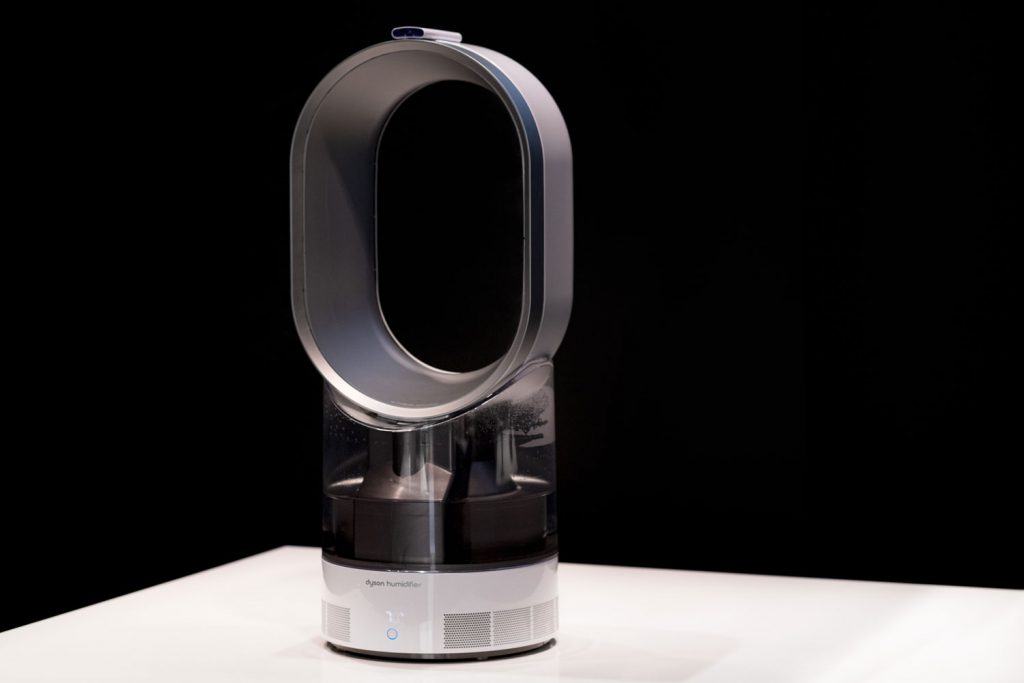
Not only can a dirty humidifier be harmful to your health, but so is a dirty filter. You cannot clean one and leave the other. As you clean the humidifier, its counterpart, the filter, ought to be cleaned.
Below are reasons why your filter and humidifier should be cleaned:
To Prevent Growth Of Mold And Mildew
Mold and mildew bloom in wet places, including inside a humidifier. As they disseminate water into the air, other parts within the humidifier such as the filter do get wet.
These parts are perfect for the growth of mold. Thus, you need to clean your unit often to stop the growth of these microorganisms.
To Remove Dirt And Debris
Specks of dirt and debris will find their way into the unit, if it is not regularly cleaned, thereby reducing its effectiveness. These particles can cause respiratory problems if they enter your lungs.
To Avoid Unpleasant Odors
Without being cleaned often, your humidifier will emit an unpleasant odor. A musty smell is released into the air as the humidifier sprays out the water.
To Prevent Build-Up Of Minerals
Water leaves hard mineral deposits that can clog the filter, and block the moisture from being released. The deposits can also cover the heating element, preventing it from functioning as it should.
How Often Should You Clean Your Humidifier Filter?
Humidifiers are great appliances in homes. If you suffer from dry skin or allergies, a humidifier can ease them all. But it can trigger health issues if it is dirty, and can create an uncomfortable environment.
Ideally, you should clean the humidifier once a week, which is also true of the filter.
However, wash it more frequently if you or a family member has respiratory problems. And don’t leave water in your humidifier if you will not be using it for a few days.
How Often Should You Change Your Dyson Filter?
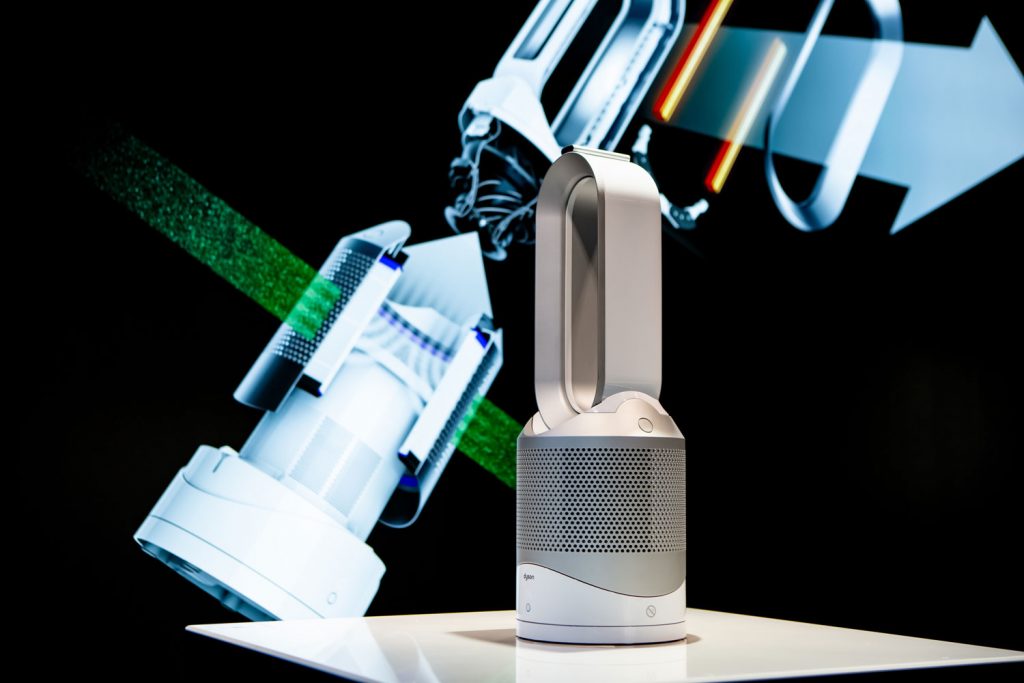
For your humidifier to remain in good condition, its filter needs to be changed often.
Whenever possible, it should be changed once every three months. If you use it daily, change it every two months. However, if you live in an area with hard water, replace the filter once a month.
Even if your humidifier filter has a special coating on it to prevent the growth of mold; it only slows it down, meaning it will need to be changed at some point.
The filters need to be fresh so that you and your family can breathe clean air to prevent respiratory problems. That is why you need to pay special attention to the filter when you disassemble the unit as you prepare to wash it.
Check if a hard crust has formed on it. If the amount of crust is not too much or has just begun forming, you may clean it. If it is too much, though, you may have to replace it.
If you have a Dyson humidifier + Cool, it will alert you when the filter needs to be changed as shown in the video below:
How To Maintain Your Dyson Humidifier Filter
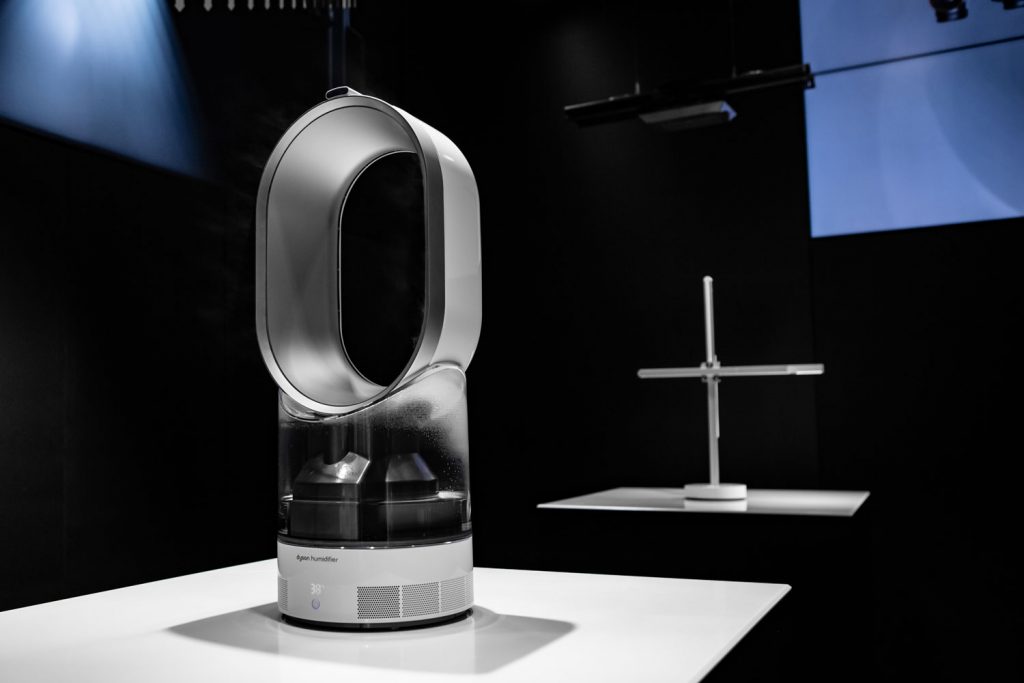
For your Dyson humidifier filter to last long, you need to take good care of it by cleaning it often and following a maintenance regimen. This applies to the humidifier as well. To enjoy your humidifier and filter for the longest time, you might as well take note of these tips:
Clean Once A Week
If you use your humidifier regularly, the more you need to clean it regularly. It stops the growth of bacteria and mold, which can create health issues that were not there in the beginning.
Empty And Rinse Before Use
Whereas you do not have to disinfect the unit every day, you should empty all the water and then rinse it with water. Also, don't forget to add fresh water before each use. This will stop the bacteria and mold from growing.
Use Distilled Water
It is recommended that you use distilled water that is devoid of minerals, as opposed to tap water that may have mineral deposits in it. As the water vapor is released into the air, so do the minerals.
White dust will cover the surface of items in the room, or it may harden on the filter or can be a good breeding ground for bacteria.
Clean Thoroughly Before Storing
When the cold season is over, and you no longer need your humidifier, clean and dry it thoroughly before putting it away. If it is stored when it is not completely dry, you may find some mold the next time you pull it out to use it.
Remember to replace the filter if it has too much clog, or if it has served for at least two or three months.
In Closing
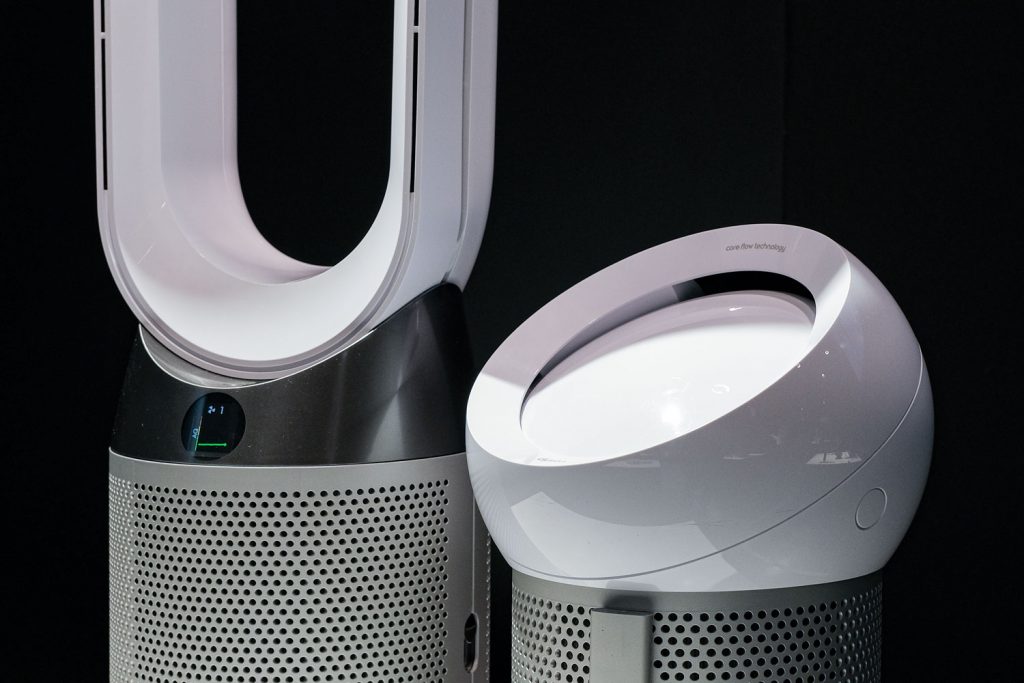
A Dyson humidifier filter should be cleaned regularly to provide clean air at all times. Problems can arise if it is dirty, such as respiratory issues getting worse.
There are several ways of cleaning it so that it continues working efficiently. Each method can be used used, depending on the extent to which a filter is dirty or has clogged up.
Don’t forget to replace your humidifier at least once every three months. If you live in areas with hard water, replace it once a month.
Would you like to know if there are humidifiers without filters, and how a Dyson air purifier works? Have a look at these other posts:
